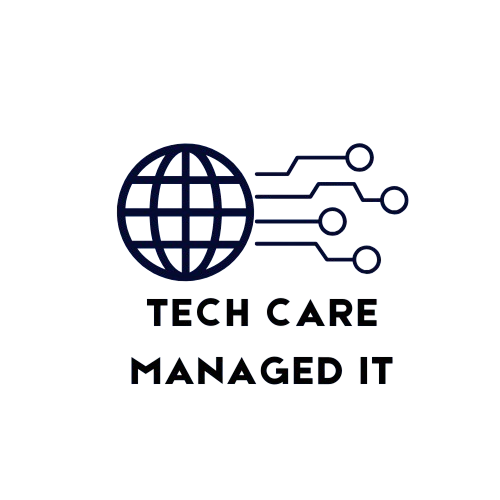Why Appointment Setting Skills Are More Valuable Than Ever
In today’s competitive marketplace, businesses need reliable methods to connect with potential clients. Appointment setting has become the backbone of many sales strategies because it bridges the gap between prospecting and closing. Companies no longer rely solely on networking events or chance encounters; instead, they need a structured process that consistently brings qualified leads into the sales pipeline. For professionals seeking growth, developing these skills is a direct path to higher conversions and long-term career opportunities. By investing in the best appointment setting course, learners gain a step-by-step framework rather than relying on trial and error. Businesses want professionals who can confidently secure meetings, create rapport, and set the stage for deals. With proper training, appointment setters become key players in generating revenue and keeping pipelines active.
What Defines the Best Appointment Setting Course
Not all training programs are created equal, which is why understanding the hallmarks of an effective one is essential. The best appointment setting course should offer more than surface-level advice; it should provide clear learning outcomes that students can measure. For example, instead of vague promises, the curriculum should outline the specific skills participants will gain, such as cold calling techniques, objection handling, and CRM mastery. Programs that combine theory with practice tend to produce better results because they help learners apply concepts in real-world scenarios. Another defining factor is mentorship or feedback opportunities since practicing scripts alone rarely builds long-term confidence. Courses with role-play sessions or live demonstrations often set participants up for higher success rates. When evaluating options, look for those that combine structure, interactivity, and accountability.
Key Features to Look For in Training Programs
When searching for the best appointment setting course, it is important to assess the features that truly matter. A solid program should include modules on prospecting and qualifying leads, as these skills are essential for identifying the right decision-makers. Another valuable component is training in modern tools, such as CRMs and automation platforms, that streamline follow-ups and reduce lost opportunities. Outreach methods like cold calling, personalized emails, and LinkedIn engagement should also be part of the curriculum since they reflect how sales actually happen in today’s business world. Programs that emphasize time management allow students to handle high call volumes without burnout. Role-playing is another critical feature because it builds resilience and provides a safe space to refine responses to objections. Together, these features ensure that learners not only absorb knowledge but also know how to apply it effectively.
Benefits of Enrolling in the Best Appointment Setting Course
Committing to a structured course offers several advantages beyond basic skill development. One of the most immediate benefits is faster sales pipeline growth, as learners quickly apply tested strategies to their outreach efforts. Confidence in handling objections also improves dramatically, as students learn to reframe rejections as opportunities. Improved communication and persuasion skills extend far beyond the sales profession, proving useful in leadership, negotiations, and client relationships. A reputable training program also creates career advancement opportunities, particularly for beginners who want to enter sales or entrepreneurs seeking to grow their own businesses. Those who already work in sales often find themselves closing deals faster because their appointment setting becomes more efficient. The knowledge gained also reduces wasted time spent chasing unqualified leads, allowing for more focus on high-value prospects. Over time, these skills directly contribute to consistent revenue growth.
Popular Formats of Appointment Setting Courses
Today’s learners have more choices than ever when it comes to how they consume training material. Self-paced online courses are popular because they allow busy professionals to fit lessons into their schedules without disrupting their workdays. These often include recorded video modules, downloadable scripts, and quizzes to track progress. Live virtual workshops provide interactivity, letting participants practice role-playing exercises with instructors and peers. In-person training, while less common, offers immersive learning and hands-on feedback, which can be especially valuable for those who thrive in a classroom-style environment. Hybrid models are also gaining traction, combining online flexibility with occasional live coaching for a balanced experience. Each format has strengths, and the best appointment setting course often depends on an individual’s learning style and availability. By choosing the right delivery method, learners increase the likelihood of applying the material successfully.
Top Qualities of Effective Appointment Setter Trainers
The expertise of the trainer makes a significant difference in the quality of the learning experience. The best instructors usually have proven experience in sales and appointment setting, giving them credibility and practical knowledge to share. Their teaching style should balance theory with interactive exercises, ensuring participants grasp both the “why” and the “how” behind techniques. Trainers who encourage role-playing and provide direct feedback often help learners overcome hesitation faster. Access to mentorship or ongoing community support is another valuable trait, as continued guidance helps students refine their skills over time. An effective trainer also stays updated on modern sales tools and digital platforms, making their lessons relevant to today’s business environment. When evaluating a course, researching the trainer’s background can reveal whether their expertise aligns with your professional goals. A skilled trainer can transform a course from average to life-changing.
Red Flags to Avoid When Choosing a Course
While many programs advertise themselves as the best appointment setting course, some fall short of expectations. One warning sign is when a course overpromises unrealistic results, such as guaranteeing six-figure earnings within weeks. Another red flag is outdated strategies that ignore digital channels, leaving students unprepared for modern client acquisition. Courses that lack real-life practice opportunities also limit growth, as theory alone rarely builds confidence. If a program has little to no transparency about its curriculum or trainer, it may not provide the depth needed for long-term improvement. Some courses also fail to include post-training support, leaving participants without guidance after completing modules. Additionally, poor student reviews or the absence of testimonials can indicate that the program may not deliver on its promises. Identifying these warning signs helps ensure your investment goes into training that truly develops your skills.
How to Maximize Results From Your Training
Enrolling in a course is only the first step; the real transformation comes from consistent application. Learners should start by practicing daily with real prospects, even if it feels uncomfortable at first. Using CRM tools effectively allows for tracking outreach, analyzing success rates, and refining strategies based on data. Creating scripts tailored to different industries ensures that communication feels relevant rather than generic. Consistency is key, as repeated practice builds muscle memory and reduces hesitation when engaging with leads. Persistence also plays a role, as many appointments are secured only after several follow-ups. Joining peer groups or forums associated with the course provides accountability and new perspectives from fellow learners. By combining training insights with ongoing practice, results become sustainable and long-lasting.
Recommended Resources to Supplement a Course
While the best appointment setting course provides a strong foundation, additional resources can accelerate growth. Books on sales psychology and persuasion deepen understanding of why prospects respond to certain techniques. Podcasts hosted by industry experts provide real-time insights and strategies that reflect today’s challenges. Webinars and online workshops can expand knowledge in specific areas like cold emailing or social selling. Networking groups and online communities allow learners to share scripts, exchange feedback, and stay motivated. Many professionals also benefit from mentorship beyond their training program, as experienced coaches can refine strategies even further. Combining formal education with ongoing learning ensures skills remain sharp and relevant. By integrating multiple resources, appointment setters stay ahead in a competitive marketplace.
FAQ Section
What is the best appointment setting course for beginners?
For beginners, the best appointment setting course is one that covers the basics of prospecting, cold calling, and communication while offering hands-on practice. Look for programs that balance structure with flexibility.
How long does it take to see results from training?
Most learners start noticing improvements within a few weeks if they apply strategies consistently. However, lasting results often come after several months of practice and refinement.
Can I learn appointment setting without sales experience?
Yes, many courses are designed for people with no prior experience. The key is choosing a program that starts with fundamentals before moving into advanced strategies.
Do companies prefer certified appointment setters?
While certification is not always required, it can strengthen your credibility and help you stand out in competitive job markets. Many employers value proof of formal training.
Is an online or in-person course better for learning?
Both formats can be effective, but it depends on your learning style. Online courses provide flexibility, while in-person programs often offer more interactive practice and direct feedback.









